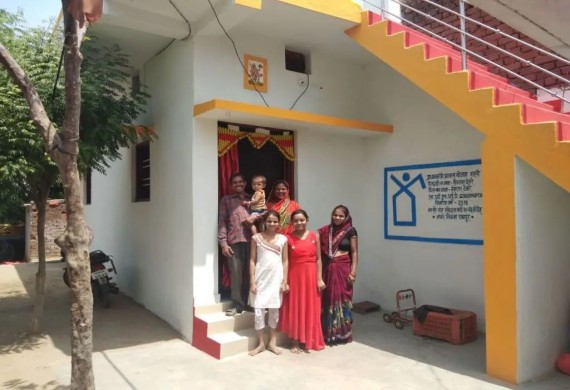
Women Own More than 69 percent of the Homes Built Under PMAY in Rural India
By: WE Staff | Tuesday, 4 October 2022
Women in rural areas own more than 69% of the homes built under the Prime Minister's Special Housing Scheme, either solely or jointly.
Out of the 2.46 crore residences that were approved, two crore have been built as of September 29, 2022, according to data provided by the government. 69% of these are wholly or partially owned by women.
In order to build 2.95 crore homes, the Prime Minister introduced the Pradhan Mantri Awas Yojana (Gramin) in 2016.
According to a top official in the Ministry of Women and Child Development, the Nari Shakti initiative was designed to ensure that women receive a fair share of government benefits.
Instead of "development of women," the initiative's central tenet is "women-led" development.
"By providing homes under the PMAY-G, the government has improved women's participation in household financial decision-making and met their goal to possess a pucca house. Living in a pucca house with minimal facilities boosts their social inclusion and provides security, dignity, and economic power.
The government claims that the Pradhan Mantri Ujjwala Yojana's provision of clean cooking fuel has contributed to safeguarding the health of women and children.
The Ujjwala Yojana has provided over 9.4 crore LPG connections.
This programme has garnered international acclaim from the International Energy Agency, which hailed it as a significant accomplishment in enhancing women's health and the environment.
The Swachh Bharat Mission, which saw the construction of 70 lakh toilets in urban areas and 11.5 crore in rural areas, is another programme that has assisted women in gaining dignity and security.
The government cited a study titled "Access to toilets and the safety, convenience, and self-respect of women in rural India" to support its claim that after toilets were built, 93% of women said they were no longer afraid of being hurt by people or animals while defecating; 93% of women said they are no longer afraid of contracting health infections; and 92% of women said they were no longer afraid of using the restroom alone at night.


.jpg)



